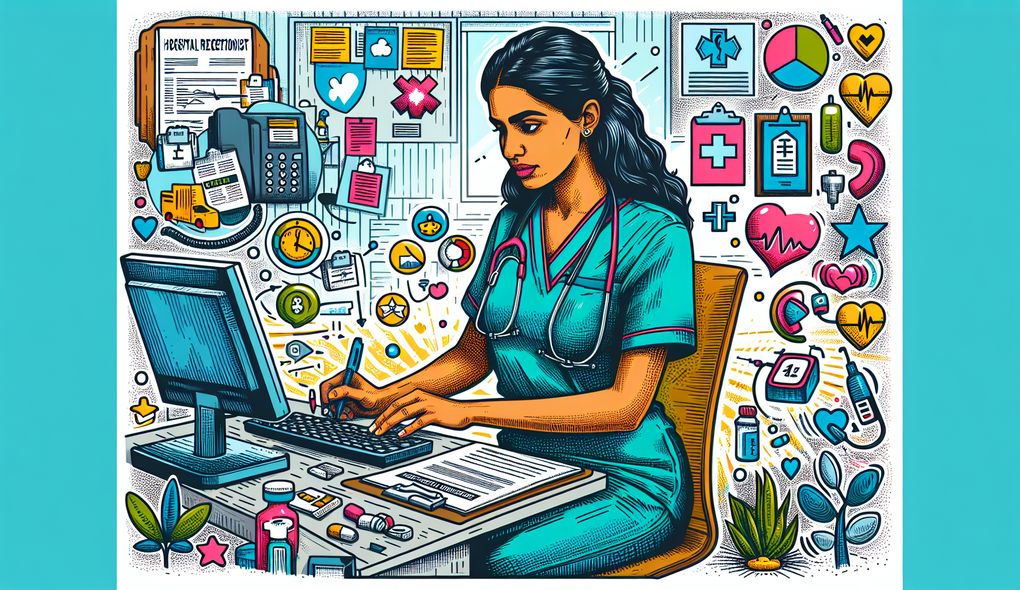How do you ensure accuracy and accessibility when organizing patient files?
INTERMEDIATE LEVEL

Sample answer to the question:
When organizing patient files, I ensure accuracy by carefully reviewing each file and cross-referencing the information with the patient's electronic health record (EHR). I double-check details such as the patient's name, date of birth, and any relevant medical history. To ensure accessibility, I create a logical and intuitive filing system. I label each file clearly with the patient's name, medical record number, and the date of the most recent visit. This makes it easy to locate and retrieve files quickly when needed. Additionally, I use color-coded labels or folders for different types of documents, such as lab results or consultation notes, to further enhance accessibility.
Here is a more solid answer:
Ensuring accuracy and accessibility of patient files is crucial for effective healthcare management. To achieve accuracy, I carefully review each file, verifying the patient's information against their electronic health record (EHR) and any relevant documents, such as lab results or consultation notes. This attention to detail helps avoid any potential errors or discrepancies. For accessibility, I maintain an organized system. I label each file clearly with the patient's name, medical record number, and the date of the most recent visit. I also use color-coded labels or folders to categorize different types of documents, making it easier for healthcare professionals to find what they need quickly. Additionally, I regularly audit the filing system and update any outdated or redundant information to ensure efficiency and smooth retrieval of files.
Why is this a more solid answer?
The solid answer provides more specific details on how the candidate ensures accuracy and accessibility when organizing patient files. It includes examples of verifying information against the EHR and using color-coded labels to enhance accessibility. However, it could further improve by mentioning the candidate's experience or any specific software they have used for organizing patient files.
An example of a exceptional answer:
As a Hospital Receptionist, accuracy and accessibility in organizing patient files are vital for providing seamless healthcare services. To ensure accuracy, I carefully review each file for completeness and consistency. I cross-reference the information with the patient's electronic health record (EHR), ensuring all data aligns and any changes are properly documented. In addition to verifying demographic details, I pay close attention to medical information, such as allergies, medications, and diagnoses, ensuring they are accurately recorded. For accessibility, I utilize advanced healthcare management software and electronic health record (EHR) systems to digitize patient files. This eliminates the risk of misplaced or damaged physical files and allows for easy retrieval of information with a few clicks. I also collaborate with healthcare professionals to establish standardized naming conventions and categorization systems, ensuring uniformity across the organization. Regular training sessions are conducted to educate staff on the efficient utilization of the filing system. Furthermore, I conduct periodic audits to identify any outdated or redundant information, streamlining the filing process and maximizing accessibility for healthcare professionals.
Why is this an exceptional answer?
The exceptional answer goes beyond the basic and solid answers by providing comprehensive details on how the candidate ensures accuracy and accessibility when organizing patient files. It includes the use of advanced software and EHR systems, collaboration with healthcare professionals, training sessions, and regular audits. These elements demonstrate the candidate's expertise and commitment to efficiency and data integrity in file organization.
How to prepare for this question:
- Familiarize yourself with healthcare management software and electronic health record (EHR) systems commonly used in the industry.
- Research standardized naming conventions and categorization systems for patient files.
- Reflect on your previous experience organizing and managing files, paying attention to accuracy and accessibility.
- Prepare specific examples of how you have ensured accuracy and accessibility in organizing patient files in previous roles.
- Practice explaining the importance of accuracy and accessibility in organizing patient files and how you would approach this responsibility.
What are interviewers evaluating with this question?
- Attention to detail
- Organizational and multitasking abilities

